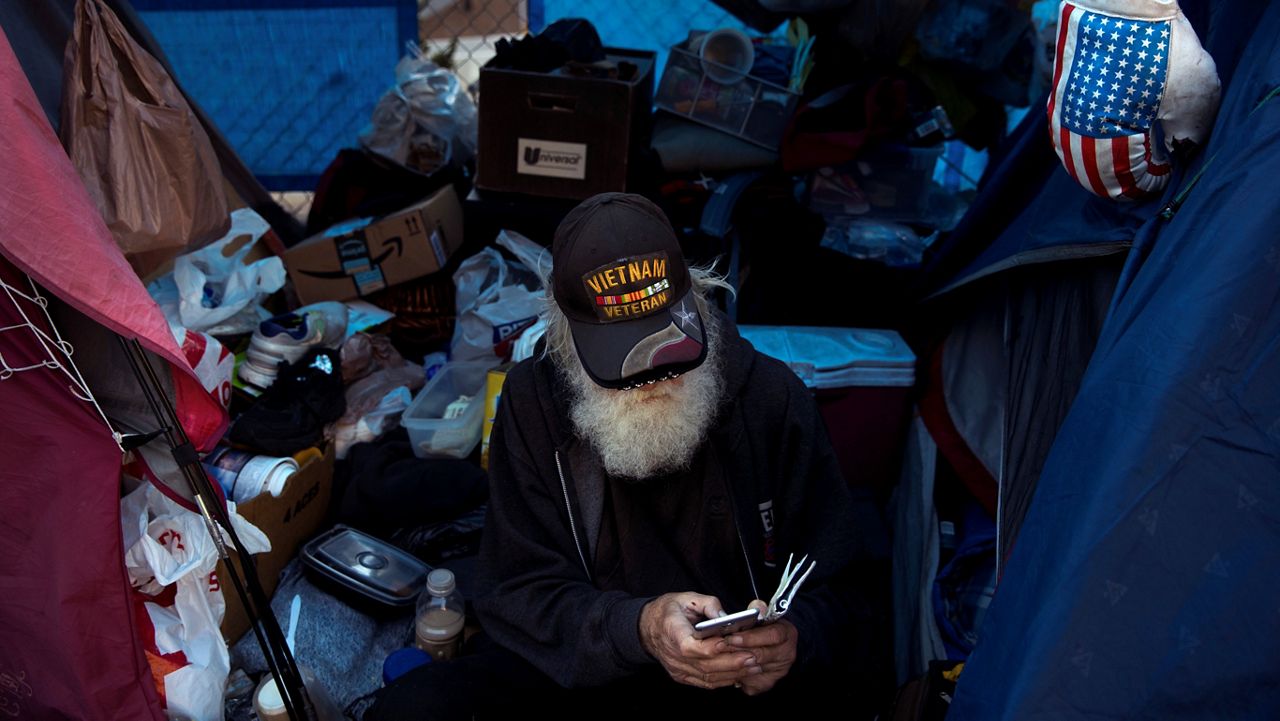In 1996, voters passed Proposition 209, which banned Affirmative Action in California. This November, voters will have the chance to reinstate Affirmative Action by voting in favor of Prop. 16.
The legislation prevents discrimination based on race, creed, color, and national origin.
Ward Connerly, former University of California regent, championed Prop. 209 in the late 1990s.
“My mission and my goal was to make sure that the state of California, which was already on the verge of becoming a majority minority state, the most diverse state on the planet, would forever treat people in accordance with the sounding of our great country, which is to treat us as equals,” he says. “And it seemed to me that what we call Affirmative Action had really become a system of preferences being distributed to people on the basis of their skin color or their race or where their ancestors originated. I really felt that it was appropriate for us to position ourselves so that we would have policies that would endure.”
Today, Connerly still doesn’t believe Affirmative Action is necessary in California.
“I think that as you look at the data at the University of California, you can see that if you’re objective about this, no one's being denied admission at any of our 10 campuses -- and they're all great -- on the basis of the immutable trait as skin color and race and all that. Nobody's being denied that,” he says. “There may not be as many people who are brown-skinned like me who are being admitted to UC Berkeley or UC San Diego or UCLA. But we’re not being denied because of skin color. We’re being denied because there are others who are competitively more admissible than we happen to be, and that is within our power to change.”
Connerly described Affirmative Action as sorting people into different “food groups.” He says it forces UC administrators to make judgements about people based on their race, ethnicity, or national origin that will ultimately disadvantage them.
“There are people who are of Asian descent, who are just as disadvantaged, sometimes more so because of the fact of language, income, culture... but they place a greater emphasis on education than others might, and as a result, they're performing in the academic setting,” Connerly says. “There are ways that you can address that. You find ways of looking at how you define merit differently."
Connerly says the UC system has eliminated standardized testing as one way of equalizing the playing field. "And there are other things you can do within the realm of holistic admission to look at the fullness of a candidate rather than explicitly selecting them or rejecting them because they happen to be Asian or Black or Latino.”
Connerly believes Affirmative Action creates a situation where administrators “discriminate against someone” while thinking they “have been fair to everybody else.” He also says California might not be treating people 100 percent fairly but is “pretty close” to doing so.
“If you want to get an education in California, you can do it. We have 10 UC campuses. We have 22 or 23 CSU campuses. We have over 100 community colleges all within shouting distance of almost every kid in this country. We have historically Black colleges and universities. We offer grants to people. So I don’t think that the claim that there is discrimination in education, I don’t think it’s there,” he says.
Still, Connerly argues that Black students are “not competitive” at UC campuses.
“Well if you look at the standards that the University of California applied, they are fairly rigorous, especially to the three most elite campuses: Berkeley, Los Angeles, and San Diego. You have to be at the tippy-top of your graduating class in order to be competitively admissible to one of those three, and that’s based on standardized testing,” Connerly says. “When you look at people on the basis of these demographic groups, and I stumble around with all of that because I don’t like the business of sorting us into these groups, but beyond that point, when you start doing that, it is inescapable that Black people [or] African-Americans are not as competitively admissible in numbers in relation to Asians and to a lesser extent whites. That's a reality.”
From 2018-2019, UCLA’s undergraduate population was three percent African American, 28 percent Asian, 22 percent Hispanic, and 27 percent white. In 2019, UC San Diego’s undergraduate enrollment was 2.92 percent African American/Black, 51.62 percent Asian/Asian American, 21.83 percent Chicano/Latino, and 19.78 percent white/Caucasian. UC Berkeley’s freshman enrollment in 2019 was 2.8 percent African American/Black, 43.2 percent Asian, 11.5 percent Mexican American/Chicano, 3.6 percent Other Hispanic/Latino, and 21.1 percent white.
The top three UC schools have freshman classes with three percent or less of the students being African American or Black.
Connerly says UC campuses “compensate” for some Black students’ grades “by looking at other factors of a non-academic nature.”
“Where they get into trouble is that Proposition 209 says you can’t discriminate and you can’t grant preferential treatment. They agree about the discrimination part. Where they stumble is on this language of preferential treatment,” he says.
Assemblywoman Shirley Weber of San Diego spearheaded ACA 5, the measure that passed in the legislature in June and placed Prop. 16 on the November ballot.
“We’ve discovered that it’s far more difficult to try to recruit students and support students when you don’t have the authority to do so, and many folks are afraid to actually reach out and do things simply because they’re afraid to be sued,” Asm. Weber says. “So for 24 years, we’ve been struggling with this and trying to figure out what to do. And obviously this is a new generation, a new opportunity for people to assess whether or not we want to continue with the current program and the current process of not having Affirmative Action.”
Like Connerly, some other opponents of Affirmative Action argue that the practice fights discrimination with discrimination by prioritizing opportunities for certain people over others. Asm. Weber previously told Inside the Issues that’s not how Affirmative Action works.
“You don’t call it discrimination when you’re dealing with the issue of equity. If people are starting in different places and it’s not their fault, then you have to figure out how you level the playing field,” she says. “You have to unravel some of the barriers and the racism that’s there and the sexism that’s there that prevents it from happening.”
Connerly says disparities do not equal discrimination.
“I start off from the presumption that every individual is entitled to equal treatment when they interact with their government [and] when they are dealing with the law,” he says. “Disparities are a collection of the choices that we've made in life, each of us, of how hard we’ve worked. Disparities do not mean discrimination. They are not necessarily bad.”
Asm. Weber argues that Affirmative Action helps level the playing field but doesn’t give handouts.
“Those who are admitted into those programs or whatever, they still have to take the test. They still have to pass their exams. They still have to earn their degrees. And we need to recognize the fact that that basically is what we’re doing: We’re trying to create an opportunity for those that have traditionally had those opportunities taken away,” she says.
L.A. County Supervisor Mark Ridley-Thomas says Affirmative Action is synonymous with equity and has also expressed his support for reinstating the practice in California.
“It was designed to right past wrongs. It was designed to address the manipulation of practices that injured African Americans, Latinos, and others, women included, in the workplace and education pursuits, higher education in particular,” he says. “No one makes the claim of perfection with respect to those policies, but I can assure you that the efforts of which Ward Connerly and the likes of him engaged, did more damage to the aspiration of African American children who are aspiring to a higher quality of life than any other single act that I can think of. And I believe that it is shameful that we have placed that kind of ceiling on the hopes and dreams of any class of people.”
Let Inside the Issues know your thoughts and watch Monday through Friday at 8 and 11 p.m. on Spectrum News 1.
Follow Charlotte Scott on Twitter.











